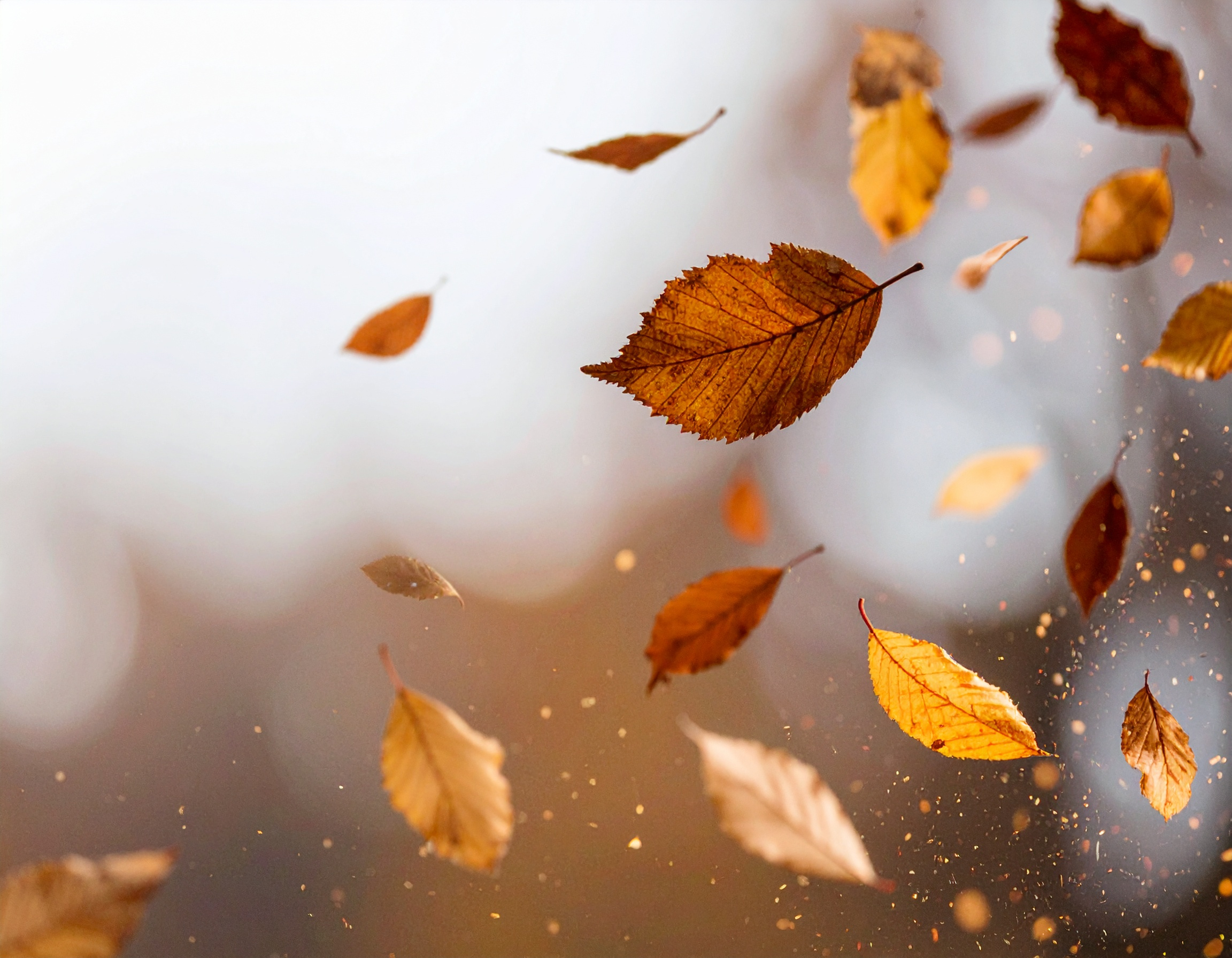A group of loved ones gathers around the Thanksgiving table, holding hands in a shared moment of gratitude. Connection, and appreciating what we have right now are some of the most meaningful gifts of the season.
I’m going to take gratitude to a whole other level this Thanksgiving.
There’s this concept in Buddhism called dukkha, which teaches that impermanence is a natural part of life. Because everything changes, suffering becomes inherent to being human, not because life is cruel, but because our minds cling to how things were or how they “should be.” As a result, we resist life’s inevitable shifts, losses, and transitions. Dukkha includes far more than major pain or grief; it’s also the everyday discomfort, dissatisfaction, and anxiety that stem from the ever-changing nature of life.
But just like everything else in nature, when we accept reality and allow ourselves to flow with change (even change we didn’t ask for), we often find relief from suffering. A tree doesn’t moan and complain (probably) when a branch breaks off; it simply grows another one. We don’t have to like reality, but reality exists whether we agree with it or not. The moment we accept that truth, we create space to grow and consciously choose our next best moves.
It's certainly easier to accept and be grateful for the things that go our way. But when they don’t, mindfulness practices help us use the difficult situations and emotions as pathways to wisdom, compassion, and courage.
One of the most powerful mindfulness practices for navigating impermanence is gratitude. Gratitude while we’re going through challenges and gratitude in preparation for the inevitable losses that come with being human.
This will be me someday! This woman’s determined steps reflect mindful aging, resilience, and the gratitude we often don’t feel until something becomes harder to do.
A personal example
I’ve always had a thing for taking the stairs whenever possible. I mean, I really enjoy it. When people ask me about it, I always say, “Someday I won’t be able to climb stairs anymore, and I’ll be sad for every time I didn’t when I had the chance.”
Little did I know I would get to test this theory earlier than expected. I blew out my knee and was on crutches for three months. Technically, I could take the stairs, but sometimes it was too exhausting or too risky. Every time I pressed the elevator button instead of climbing the stairs, I mourned the loss of something I loved.
Speaking of gratitude, I’m very grateful that situation was temporary. As soon as I could, I returned to my stair-climbing ways with real evidence that someday, when I’m no longer physically able to take the stairs, I will absolutely miss them.
That experience left a deep impression on my understanding of gratitude and mindful awareness. During my recovery, there were many things I enjoyed that I suddenly had to pause. Because of that injury, and because I want to stay as mobile as possible for as long as possible, I chose to stop playing competitive soccer. If you knew me before that, you’d know soccer was my absolute favorite thing in the world. I played and watched almost daily. And like Dani Rojas on Ted Lasso, I also believed “football is life.”
Until it wasn’t.
Freaking impermanence.
A woman comforts a man during a painful moment. Even in our hardest seasons, connection and compassion can be something to hold onto.
I share all this because gratitude is truly a practice of accepting reality, a practice of understanding dukkha. Many people don’t enjoy taking the stairs and won’t unless they’re forced. Then they complain the whole way. But if they lost their ability to walk, they would likely give anything to climb a few steps again.
Gratitude isn’t easy, especially when we’ve experienced major loss — a loved one, a job, a home, our physical or mental capacity. It’s also difficult when we witness the suffering others endure daily. That’s why gratitude is a practice. Sometimes we don’t feel like doing it (just like exercise) but once we have, we’re glad we did.
Gratitude requires acknowledging the present moment exactly as it is. Even in our darkest seasons, there’s usually something, however small, that supports us: the presence of loved ones, a breath of fresh air, the fact that we’re still alive and life keeps on life-ing. From that recognition of reality, peace and love eventually return, even if it takes a minute (or several).
And here’s the next layer: when we learn to appreciate things we once found annoying, we don’t have to experience a greater loss to recognize their value. If we lost our sight, we’d give anything to see even the face of an enemy. If we lost our hearing, we’d give anything to hear nails on a chalkboard. If we lost the ability to feel physical sensations, we’d give anything to experience an itch. If we lost our sense of taste, we’d give anything for a plate of Brussels sprouts. If we lost our sense of smell, we’d long for the fresh scent of skunk.
Autumn leaves drifting gently to the ground show us that impermanence is woven into every part of nature. Observing nature and its seasons teaches us to appreciate each moment for exactly what it is, temporary, beautiful, and worth noticing while it lasts.
The reality is that we will lose everything at some point, because impermanence is the rule of life. But when we savor each moment and each experience while we have it, we become more resilient, grounded, and prepared for the inevitable transitions ahead.
Some more examples from my own life
My dog is a world-class whiner. I remind myself he can’t use words, so whining is the best he’s got. And someday, I’m going to miss that sound with my whole heart. Whine away, buddy.
LA traffic is notorious. But I’m grateful for the ability to drive, for a reliable vehicle, and for having public transportation options (they may not be great, but they exist). I’m grateful for uninterrupted audiobook and podcast time. If I lost my ability to drive or get around, I might actually crave a little rush-hour traffic.
Physical movement. Sometimes, when I’m on a run I’m not really feeling it and don’t want to run anymore. But somehow, I have to get back home, so I keep my feet moving (slowly), all the while complaining in my head, making it even more miserable. Inevitably, I come across someone who physically can’t run and all of a sudden, my stinky attitude disappears. Maybe they’d love to be able to run and here I am, moaning about it. Someday I’ll be in their shoes, so, I might as well be grateful that I can run now and lean into the discomfort. Funny enough, that shift in attitude always leads to the run becoming easier and faster.
And lately, I’ve talked with some older surfers who say they can’t move on their boards like they used to. Yet, they’re still grateful for every wave they’ve caught and every wave they can still ride. That wisdom from my future reminds me to move my body in every way I can, while I still can.
Moral of the story
This Thanksgiving and every moment thereafter, appreciate what you have while you have it — yes, even the annoying stuff.
Written by Amanda Stemen, MS, LCSW




